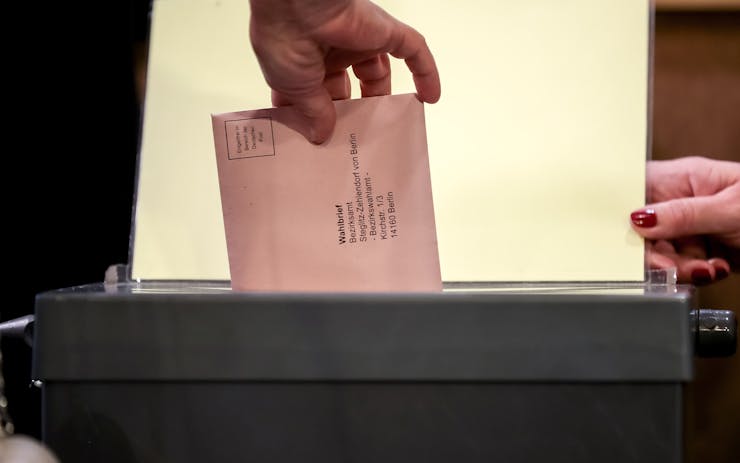Berlin will vote for a new state Parliament and a new mayor on Sunday, and for the first time ever, cannabis is playing a role in the campaign.
While cannabis isn’t the Berlin electorate’s chief concern, it is one of the most discussed topics of this year’s campaign. A 2014 coffeeshop pilot program proposal, which would have allowed Dutch-style cannabis coffeeshops, sparked a debate that continues to this day. It’s a popular topic not only because support for legalization is 40 percent in Berlin—more than in any other German state—but also because of a controversial, zero-tolerance policy in the popular Görlitzer Park, a new enforcement effort that has brought the issue to the center of public attention.
Berlin is traditionally a rather cannabis-friendly city. But in Görlitzer Park, local police are now out in full force every day, chasing illegal dealers and consumers alike. The crackdown has fractured cannabis sales and spread them throughout the whole district, annoying residents. Many say they would much prefer the coffeeshop pilot program being supported by the Berlin Greens and three other political parties. The so-called Pirate Party even put cannabis on its campaign posters this year, asking Berlin’s residents: “Are you still smoking pot or are you already enjoying?”
Like the Pirate Party, the Left Party, Liberals, and Greens all support an end to prohibition. All four parties have plans in their manifestos to establish a regulated cannabis market. Even the biggest party, the moderate left Social Democratic Party (SPD), has been toying with a liberal cannabis policy despite a 2015 survey that showed a small majority of members actually opposed legalization.
Clearly leading the mayoral polls in Berlin is Michael Müller, a member of the SPD who has ruled the capital with the conservative Christian Democratic Union (CDU) since his predecessor, Klaus Wowereit, stepped down in 2014.
The cannabis-friendly climate seems to frighten the CDU, Germany’s largest political party and that of German President Angela Merkel. The party, traditionally weak in the capital, recently put a countdown clock on Facebook that displays the time until the election. It features a large cannabis leaf and the logos of the four parties supporting regulation. “CDU Berlin warns: Legalization of cannabis is imminent,” it reads.

Germany’s Christian Democratic Union posted an online countdown to the election that warns, “Legalization of cannabis is imminent.”
The move, viewed by most as a German version of Reefer Madness that might be best described as Cannabis Angst, was widely mocked in local and national media.
Chances are good the new state government will consist of parties in favor of a new cannabis policy. Polls predict a big win for the new, anti-migration party AfD (Alternatives for Germany) and losses for all others. A coalition between SPD and two or more of the four cannabis-friendly parties is the most probable scenario. A continuation of the current coalition of SPD and CDU seems very unlikely.
But don’t expect real change to come about soon. Even if the new state government pushes for cannabis pilot programs or increases the tolerated amount for personal use, there’s only so much local officials can do. Drug policy is a federal matter in Germany, and changes to the Narcotics Act can only be made by the federal government.
Fortunately, the 16 German states do have some room to maneuver when it comes to interpreting national law. Today, for example, Bavaria prosecutes nearly any cannabis offense. The city-state of Bremen, on the other hand, recently decided to decriminalize the use and cultivation of up to three plants, reform the very strict rules for DUI offenses to be more realistic, and raise the allowed amount for personal use. If voters elect a cannabis-friendly coalition, similar steps can be expected in Berlin.






